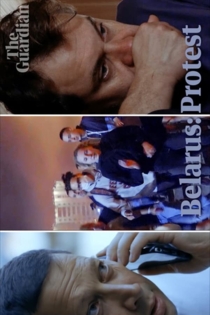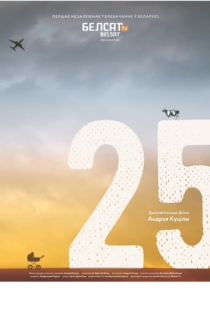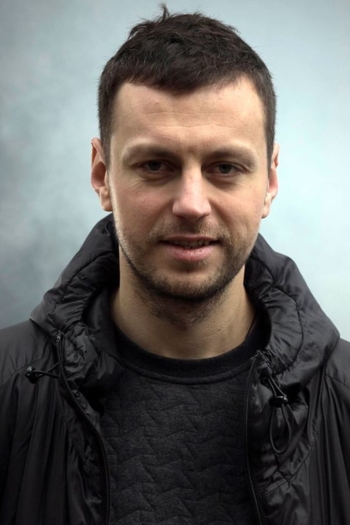
Andrei Kutsila
1983 (43 года)Стриптиз и война
Andrei Kutsila
The film tells the story of a small family, consisting of a grandfather retired from the army, and his stripper grandson. It is not just a story of a relationship, but rather a reflection of entire Belarus and the post-Soviet, pro-Russian world. Moreover, it's a universally-recognized reflection of a generation gap.
Strip and War
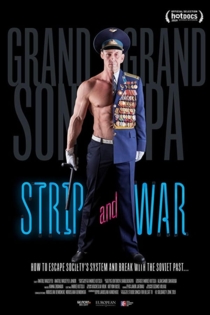
Царь горы
Andrei Kutsila
Belarusian vlogger and young farmer Semyon, who is a deeply religious man, always loving to philosophize in relation to democracy, admire his mother and share this with the whole world. For five years now, he has been living in a village with two little sons and raise sheep. It would seem that a harmonious existence in the wilderness can not hinder anything...
King of the Hill
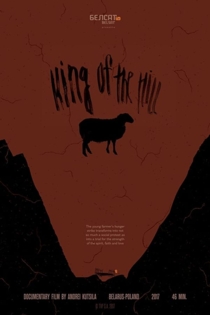
Summa
Andrei Kutsila
Andrzej Strumillo
A young Belarusian artist leaves her husband behind in Minsk to visit her friend, the elderly painter Andrzej Strumillo, in his idyllic manor house in Poland. It’s a fairy-tale place, surrounded by marshland and a river. There are horses, for which the two artists share a passion, as well as dogs. It has been two years since her last visit. For her, the trip offers a welcome diversion from city life; for him, it’s a break from a lonely existence marked by old age: a curved spine, painful knees. “It’s sad life’s so short,” he says.
Summa
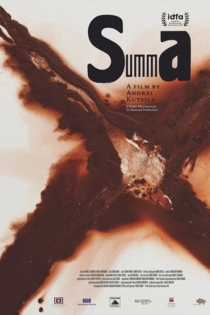
Walls
Andrei Kutsila
On the night of August 13-14, the authorities started a mass release of protesters against rigged presidential elections from prisons on Akrestsina street in Minsk and Zhodzina. All these days hundreds of relatives waited, and some continue to wait under the walls of the detention facility for their children, wives, husbands, brothers, sisters, parents and friends. Detainees come out of prisons and tell about the violence and abuse which they experienced. Information about this is instantly spread on the Internet. People already know the truth. Film director Andrey Kutsila will depict not the stories of torture victims themselves, but their relatives. Under the walls of the prison on Akrestsina street, they are in some emotional state of uncertainty, confusion and hope. The camera will “pick up” individual faces from the crowd and supposedly overhear conversations of Belarusians, filled with pain, anger and despair.
Walls
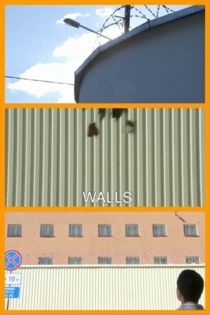
Мне трэба поціскаў
Andrei Kutsila
Taссiana Babryckaya, Valiantsina Babryckaya
An old woman lives in a remote village in Belarus. As the end of her live approaches, she starts to read the worn-out notebooks of her daughter. Together we go on a journey to the unknown world of a person who is abandoned and forgotten by everybody.
I Need the Handshakes
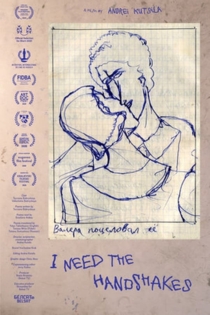
Svajo Mesca
Andrei Kutsila
Can one tear oneself from hearth and home, even if it is very boring and lonely there? Andrei, a small man in a small place, has spent 15 years of his life working in a community club. But today the large hall is empty; from time to time children come in here to sing. Meanwhile real Belarusian culture with its authentic singing conceals itself far from the state institution in a small local country house. Every now and then Andrei calls on here. Nevertheless he tries hard to revive virtually dead cultural center, his only place and reason for existence.
Where You Belong

Nad Niemnem
Andrei Kutsila
Once he wanted to be a soldier and today he is a rural doctor and a hard-working farmer. He is also a lonely guardian of the memory of this land’s Jewish inhabitants whose only reminder is an overgrown cemetery. A bucolic landscape over the Neman River preserves the traces of the deceased.
Over the River

Love In Belarus
Andrei Kutsila, Viachaslau Rakitski
"Love in Belarus" is love through the prison bars for Nasta Palazhanka and Dzmitry Dashkevich . They met in the "Young Front" - illegal Democratic organization. After protests in December 2010, they were put in prison. After detention in a KGB pretrial center Nasta was sentenced to a year of probation, and Dmitry was thrown in jail almost for three years. During his detention Dzmitry’s mom died, and Nastya remained the sole support for his father. The young couple married in prison, and on August 28, 2013 the leader of the "Young Front " was released. The lovers wrote thousands of letters to each other from behind the bars. These letters tell us about the feelings of young Belarusians, who fell in love in the time of the dictatorship.
Love In Belarus

Днюка
Andrei Kutsila, Aleksander Nalivaiko
An ordinary village in Belarusian Palessje. An old pair, Antanina and her husband Viktar, sit knee by knee in their small village hut, decorated with home-made cloths. He drinks badly and wonders “what does one live in this world for?” It is very sad and gloomy in winter, but when the spring comes, the nature revives, and so do the people and the animals. Life goes on. But why does the old woman sigh so heavily? A very colorful and realistic image of old-time people microcosm. Sometimes amusing, sometimes tragic. There is swearing, quarrelling, disagreement; and at the same time harmonious coexistence of people and nature, man and woman.
Kill the Day

Davoli! Da voli...
Andrei Kutsila, Viachaslau Rakitski
Minsk. December 19th 2010. After the Belarus government blatantly hijacked the results of the presidential election, tens of thousands of Belarusians came to the streets in a peaceful protest. Tired of a ubiquitous system of lies, these demonstrators set their sights on truth and freedom.
Enough! To Freedom...

Fokusnoe rasstoyanie
Andrei Kutsila, Roman Romashko
A lonely, aging photographer lives in a little town where the traces of the communist era are well-preserved. Love, loneliness, senility, sadness, tiredness, memory, reminiscences, offence… Life becomes black and white when the end is closer, when colors bleach; paper turns yellow and only in the memory faces and smiles are still bright and varied in colors.
Focal Distance

Hosci
Andrei Kutsila
Aliaksei Shchadrou
Aliaksiej Ščadroŭ used to work as a paramedic in an ambulance emergency service in Belarus. His ambulance was often called to collect homeless people from the streets, but after a few kilometres the crew would throw them away. Once in prison, Aliaksiej found himself unwanted too. The time behind bars changed the former paramedic’s outlook on life. Following his release, Aliaksiej led a vagrant’s life and lived in church buildings. After that he settled in the Aliaksandraŭka village where he organised unofficial asylum —he started to admit poor, disabled people, take care of them, help them obtain reissued passports, and enable them to return to a normal way of life. Unfortunately, the local authorities have not been appreciative of Aliaksiej’s initiative...
Guests
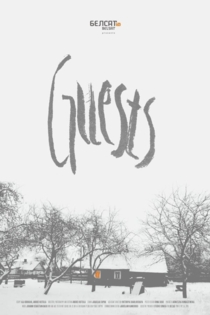
Gdy kwiaty nie milczą
Andrei Kutsila
Another rigging of the presidential election in Belarus in 2020 led to massive civil resistance which the country had never experienced before. Brutal suppression of the peaceful protests resulted in more massive marches. Yet, the peaceful protests, having lasted for several months, did not achieve Alexander Lukashenko’s resignation from the president’s post he’s been holding for 27 years. Instead, political repressions in Belarus increased dramatically and became the largest in the history of Europe since the 1970s. The documentary focuses on the lives of Belarusian families who try to continue living and carry on despite being traumatised. Looking at their lives, we can see the pain and hope, feel the fear and determination of these people. An extraordinarily moving film from a Belarusian director living in Poland.
When Flowers Are Not Silent
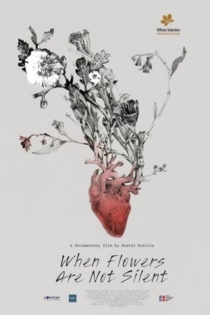
Belarus: Personal Stories From a Country in Turmoil
Maxim Shved, Andrei Kutsila
Mass protests across Belarus erupted following the widely disputed election that put President Lukashenko in office for a sixth term. Three Belarusian filmmakers document personal stories of people caught up in the political turmoil. Filmmaker Maksim Shved was arrested, imprisoned and then released while the protests around him swelled. Meanwhile, Ekaterina Markavets observes the psychological burden of her fellow citizens and worked with professional psychologists to set up a volunteer support service for people affected by current events. Andrei Kutsila followed a celebrated Belarusian broadcast journalist who worked for State TV for nearly 40 years, now in hospital recovering from injuries she sustained while at a protest. All three filmmakers wonder what the future holds for their country and fellow citizens.
Belarus: Personal Stories From a Country in Turmoil
